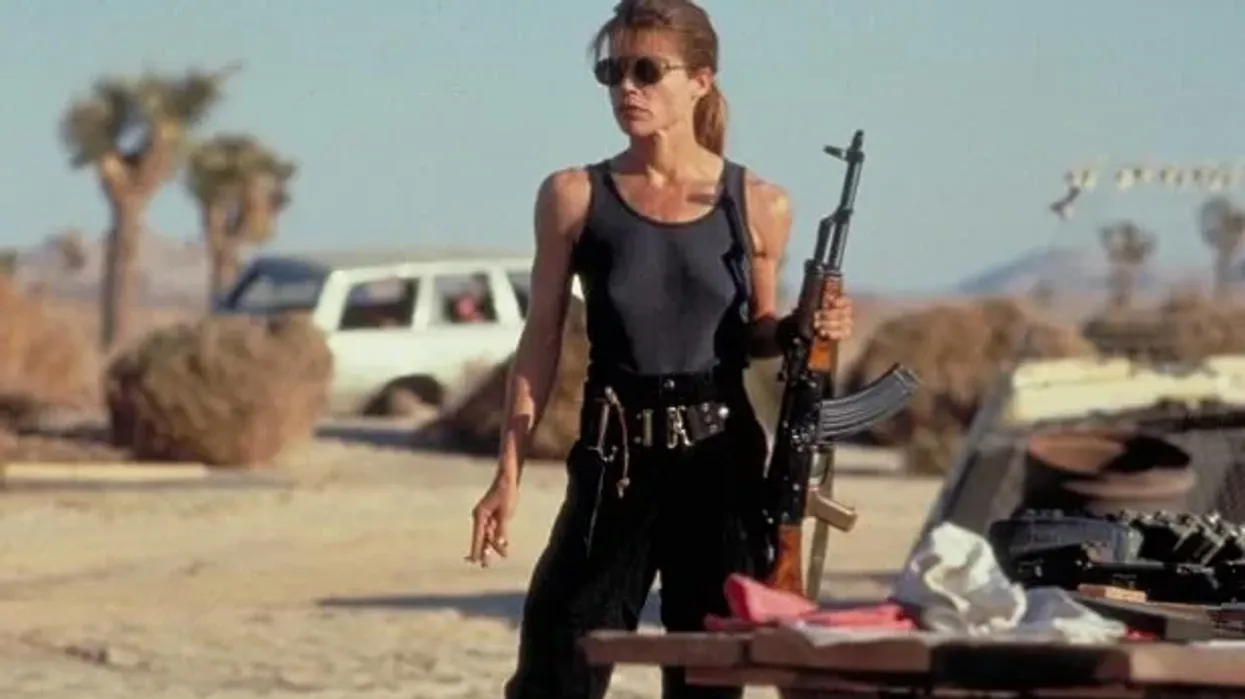How Did the WGA Protect Writers' Future From AI?
The WGA Negotiating Committee has some real Sarah Connor vibes.

'Terminator 2: Judgement Day'
Artificial intelligence was a blip on our radar this time last year, but by the time May 2023 rolled around, it was front and center in the negotiations between the AMPTP and WGA.
Over the last year, we've seen how ChatGPT and other programs have been able to synthesize ideas and write incredibly quickly. While we all had fun playing with it early on, I quickly saw a world where writers would be forced to fix crappy AI scripts or forced to use ideas based on algorithms run by machines without creative input or reasoning.
That was a scary world, but it's also when the WGA stepped in and made sure it was a battleground they would hold, and they made sure writers' futures would not be in jeopardy.
Let's look at how they put their foot down and created a precedent protecting human ingenuity.
How AI Took Center Stage In The Hollywood Writers' Strikewww.youtube.com
What AI Provisions are in the WGA Contract?
The contract includes several key provisions: it prohibits the utilization of AI for script or treatment creation or modification. It mandates that studios must openly acknowledge any AI-generated content provided to writers. And it also safeguards writers from their scripts being employed for AI training without their consent.
They also got the following stipulations:
- AI can’t write or rewrite literary material, and AI-generated material will not be considered source material under the MBA, meaning that AI-generated material can’t be used to undermine a writer’s credit or separated rights.
- A writer can choose to use AI when performing writing services, if the company consents and provided that the writer follows applicable company policies, but the company can’t require the writer to use AI software (e.g. ChatGPT) when performing writing services.
- The Company must disclose to the writer if any materials given to the writer have been generated by AI or incorporate AI-generated material.
- The WGA reserves the right to assert that exploitation of writers’ material to train AI is prohibited by MBA or other law.
How Does this Protect Writers in the Future?
 'The Matrix'
'The Matrix'Credit: Warner Bros.
The WGA has basically made sure human beings will stay at the center of the creative process with these deals.
Writers cannot be replaced by AI at the center of the process. No script or treatment by it will be considered literary material at all. If you're brought int to work on something generated by AI they must tell you and you will be given and paid like it's an original idea.
This prevents writers from having to rewrite AI drivel and being paid less. And it protects them from studios assigning them AI scripts without telling them. It also gives writers the powers to use AI, as well as collaborating with companies on how to use it.
Look, I know the companies in the AMPTP will be looking for loopholes in all this, which is why it's important to have the provisions allowing us to use AI with the companies if need be. And I know the WGA will monitor this moving forward, protecting us as more changes arise.
The steadfast commitment of the WGA to protect writers has ensured that AI is used responsibly and ethically in the industry.
Of course, enforcing this will be on both the WGA and studios. And there are still many cases on AI copyright and ideation that will decide how AI systems are used.
As technology continues to evolve, the WGA remains at the forefront, championing the rights and creativity of writers, and in doing so, preserving the essence of storytelling in the digital age.
These contracts last three years at a time, so
We'll keep you updated as all this is put into effect.













